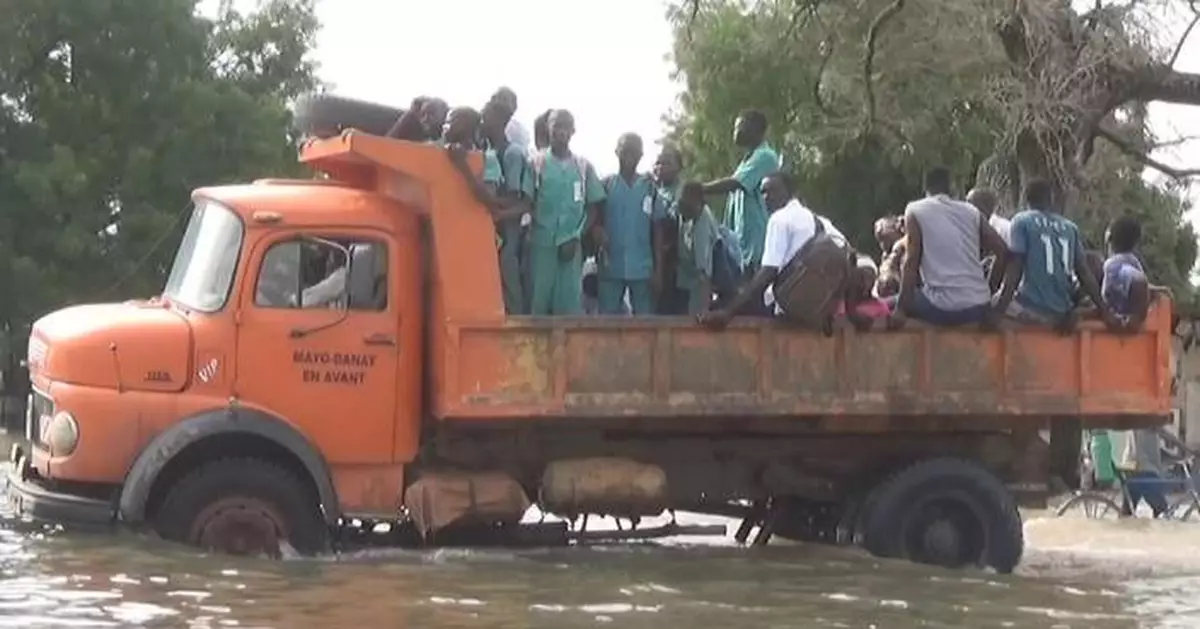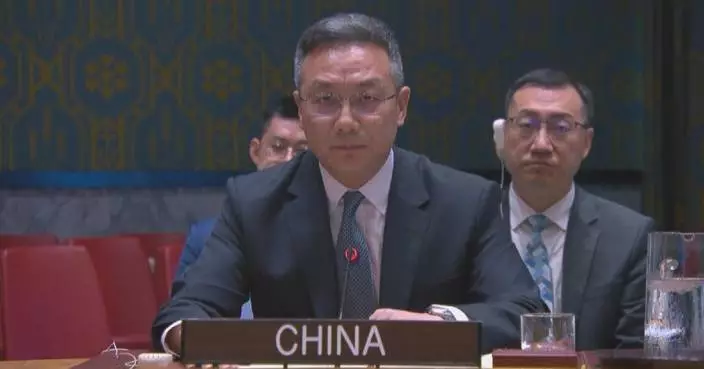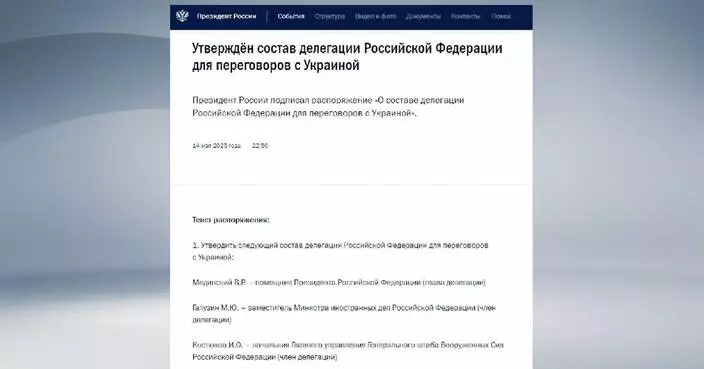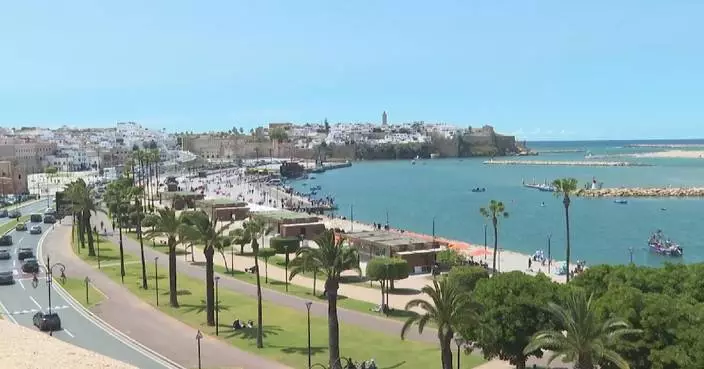Nearly a month after torrential rains hit Cameroon's Far North province, the town of Yagoua remains largely submerged, with residents struggling to cope with the persistent flooding.
The flooding caused by weeks of heavy rainfall has displaced thousands of families and destroyed swathes of farmland.
Local authorities in the Far North have launched an emergency flood appeal.
"There's no way for the water to get out. So the water is at the same level, even if you try hard to get it out, it always comes back to the same place. So we've been in water for three weeks, as you can see. Even in the kitchen there's water, so we can't put anything on the fire. For those who don't have a fence, the water level carries everything away, even the pots," said Vougsouna Robert, a victim.
The floods have rendered many roads impassable, forcing residents to rely on small boats, known locally as pirogues, for transportation.
A key bridge connecting the city's main districts has collapsed, further complicating movement.
The natural disaster also disrupted learning, as dozens of schools are unable to reopen. With the start of a new school year, pupils have been moved to the schools that are still functioning.
The prefect of the Mayo-Danay division, Jean Lazare Ndongo, said that they are taking measures to ensure the safety of the pupils who have to cross to the other side where their schools are.
Students now face a challenging daily commute, often involving truck rides followed by boat crossings to reach their schools.
"The tarmac has given way to water, and wherever you see the vessels going by, that's where the main road is. We do our best to cross these tides of water to get to our places of service. It's not easy but as it's back to school we have no choice. We have to go and look after our children and little brothers on the other side," said Fawa Jean Jacque, a teacher.
In the meantime, resettlement sites are being created for families who have lost their homes.
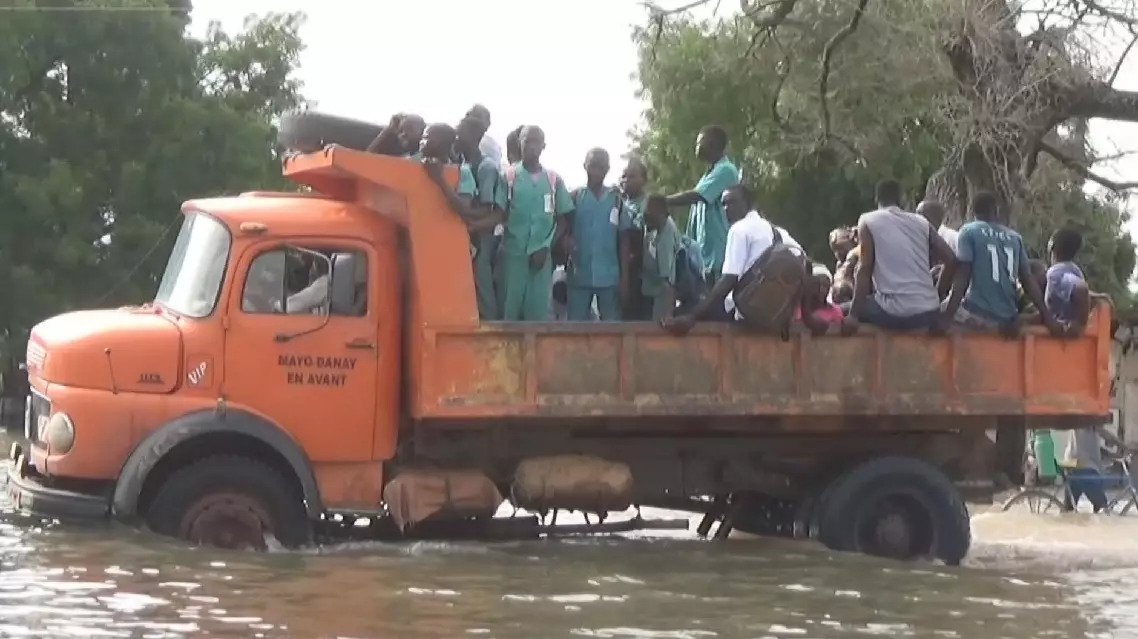
Cameroon's Far North grapples with severe flooding, disrupted daily life
May 15 marks the 77th anniversary of Nakba, the massive exodus of Palestinians that occurred in 1948 following the establishment of the state of Israel. Yet decades later, displaced Palestinians in Gaza are facing a worsening humanitarian crisis due to Israel's blockade of goods and supplies.
Israel blocked the entry of goods and supplies into Gaza on March 2, following the end of the first phase of a January ceasefire deal with Hamas. It resumed attacks on Gaza on March 18.
Concerns over Gaza's humanitarian crisis are mounting following Israel's recent declaration that it plans to intensify its ongoing military campaign.
Salem Abu Aqda is 78 years old, whose family fled to Gaza from northern Palestine decades ago. According to Salem Abu Aqda, life in Gaza is now miserable due to severe shortages of daily necessities, but they have nowhere else to go.
"Long time ago, they pushed us out of northern Palestine to the Gaza Strip. Now, Israel is chasing us all the way to Gaza. We are still caught in the midst of war. This is not a war between two states (armies), but they are just killing the helpless civilians who hold nothing but a stick. What's more, Israel has deprived us of basic living necessities. They have shut down the border crossings, leaving us without flour, rice, fish, and meat, absolutely nothing. Where are our human rights?" said Salem Abu Aqda.
Ahmed Hamad is one of the many displaced Palestinians now seeking shelter in overcrowded refugee camps in Gaza.
His family was forced to flee seven times over the past year before finally returning to their home, which, however, was no longer there.
"What we are experiencing now is even worse than the Nakba of 1948. We have suffered massacres, hunger, killing and repeated displacement. Now, the Israeli military urges us to move to the western part of Gaza, claiming it is a safe zone. But the reality is that we are attacked no matter where we go. We fled south to Rafah -- only for it to be bombed. We escaped to Khan Yunis and Deir al-Balah -- only to see them bombed as well. Finally, we returned to Northern Gaza, and it also came under attack. The truth is, we live in a constant state of violence and displacement. Wherever we go, we face attacks. Death surrounds us everywhere," said Ahmed Hamad.
Israel's military campaign in Gaza, launched after Hamas-led attacks on southern Israel on Oct 7, 2023, had so far killed 52,928 Palestinians, Gaza health authorities said on Wednesday.
Humanitarian conditions in the territory have continued to deteriorate, with large-scale destruction, limited access to aid, and worsening shortages of food, water, and medical supplies. Aid agencies have warned that civilians, particularly women and children, are bearing the brunt of the ongoing conflict.
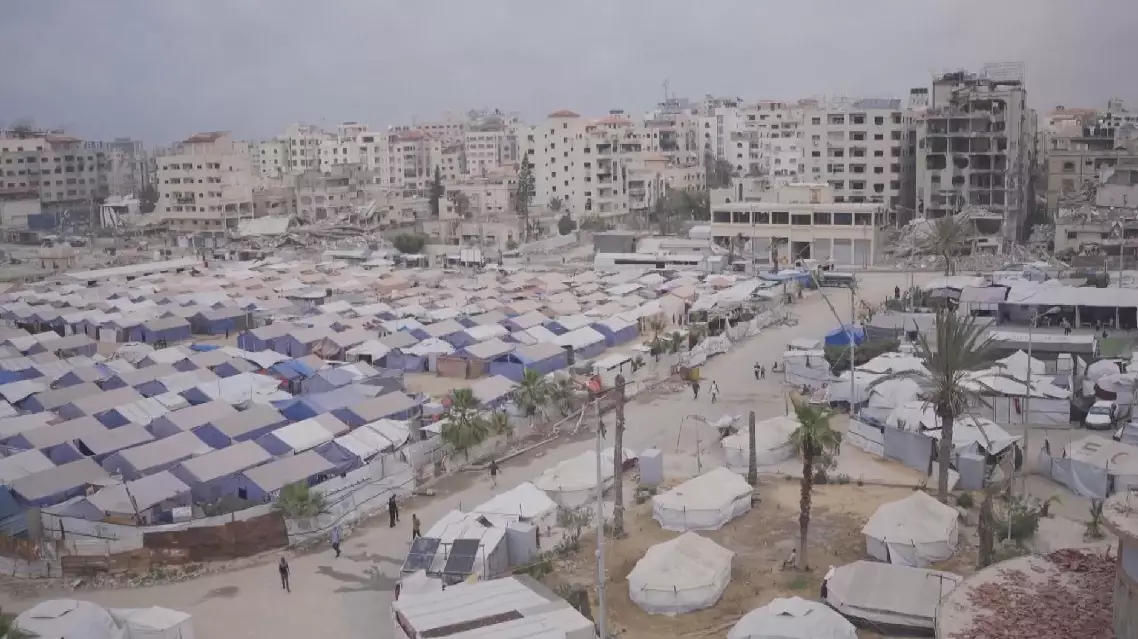
Palestinians face worsening humanitarian crisis due to Israel's blockade of aid into Gaza



